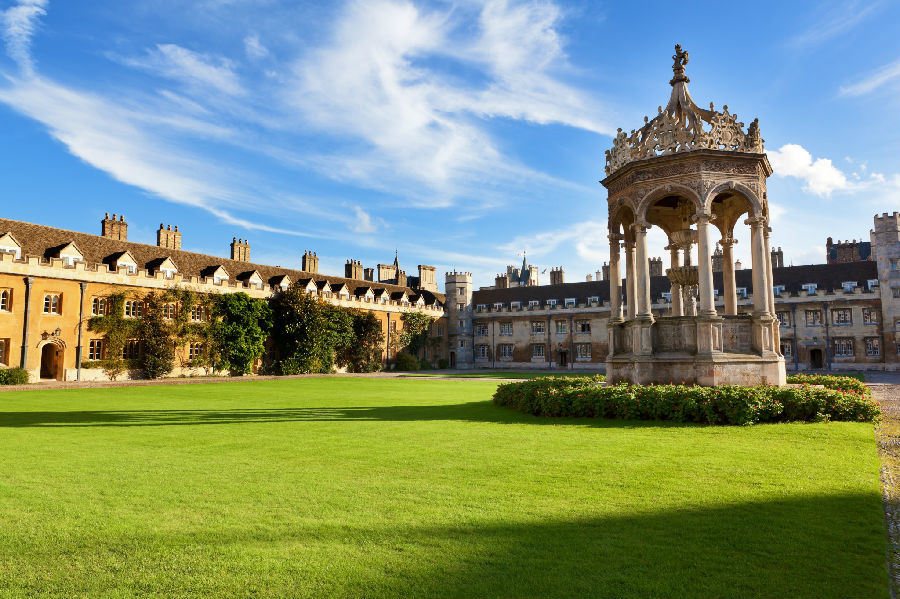(单词翻译:单击)
听力文本
College Ratings: How Helpful Are They?
Lists that rate colleges and universities are very popular among parents and students in the United States.
But are published lists the best way to choose the right school?
The best known ranking is probably by the magazine U.S. News & World Report. On top of the magazine's list this year are schools known around the world. They include Princeton University in New Jersey, Harvard University in Massachusetts, Columbia University in New York City, The Massachusetts Institute of Technology (MIT) in Boston, The University of Chicago and Yale University in Connecticut.
U.S. News & World Report published its first "America's Best Colleges" report in 1983. Since then, some educators have questioned the published rankings and how useful they are.
A number of magazines publish lists of college rankings once every year. High school students use the lists as reference guides when considering where to continue their education. There are plenty of schools to choose from. Across the country, more than 4,000 colleges and universities offer undergraduate degree programs.
Last month, Forbes published its college ratings for 2019. It listed 650 schools. That represents only about 15 percent of all U.S. institutions of higher learning.
The magazine's top five are a little different from those of U.S. News & World Report. They are: Harvard University, Stanford University in California, Yale University, MIT and Princeton University.
Like other lists, Forbes considers things like student satisfaction, how successful college graduates are and how much money they make. The magazine adds another important piece of information: how much debt students will owe after they graduate.
We spoke with education experts and people whose job it is to help high school students choose the right college. All of them said students and parents should look at more than just rankings because they do not tell the whole story about a school.
Ray Anderson of Virginia is a former high school principal. He now works with a service called AGM-College Advisors. It provides guidance on higher education to students and their families.
Anderson says what is most important to him is knowing what the student wants, likes and is capable of doing.
"The focus is on who you are, and then what schools match you," Anderson said, "not matching you to the school."
Anderson told VOA the published rankings can help because they have valuable information about the schools.
Jeffrey Stahl agrees that rankings have limited value. In his job as a counselor at Yorktown High School in Virginia, he talks with students about colleges.

Stahl says choosing a college is a very personal decision. He said that the rankings "can be helpful," but some students place too much attention on the name of a school and its position in rankings.
"So much about the campus environment, students, professors, cannot be shown just by ranking," Stahl said. He suggests that families use the ranking information as a starting point. Then, they should widen their search, make their own list, and go see the colleges for themselves.
But David Hawkins is critical of the college rankings. He is with the National Association for College Admission Counseling. He told VOA that rankings "are not mathematically proven to measure the quality of any single college, much less to provide comparisons between colleges."
Hawkins said lower ranked schools may have difficulty getting students interested in their programs.
"As such," he said, "the rankings have been known to create ethical problems, as institutions misreport data or otherwise seek to manipulate their ranking." Like the other experts we spoke with, he said students must look past those ratings to a gain a more factual opinion about the schools for themselves.
In July, U.S. News & World Report "de-ranked" five institutions from its list for misreporting information. Because of this, the magazine said, their ranking number was "higher than they otherwise would have been."
The five included the well-known University of California at Berkeley.
Hawkins noted that people overseas might think the rankings come from the U.S. government. That is not true, he notes. "We try to emphasize that these are commercial publications, rather than 'official' rankings of any sort."
Richard DeMillo heads the Center for 21st Century Universities at the Georgia Institute of Technology. He also is a professor at Georgia Tech — a school that moved up 13 positions on Forbes' latest list.
DeMillo says, while the higher rank is "nice, it does not matter." He believes that Forbes, U.S. News & World Report and other publications are providing a service, "if you ignore the ranking part of it."
For example, he finds the information about all the study programs to be useful. The ratings sometimes list lesser-known schools that might be strong in a field of study that a student is interested in.
All the experts VOA spoke with had similar advice for students looking for the right college. Go visit the school, talk to the admissions officers and talk with current students.
"There are so many hidden gems out there!" Jeffrey Stahl said. "Just because a college doesn't make the "list" doesn't mean it doesn't have great programs and resources!"
I'm Anne Ball. And I'm Dorothy Gundy.
I'm Alice Bryant.
重点解析
重点讲解:
1. on top of 在......上面;在......之上;
They stood on top of the hill, drinking in the beauty of the garden city.
他们站在小山之巅,饱览这花园城市的美景。
2. since then 从那时起;以后;
Since then he has been drawing a pension.
从那时起他一直领退休金。
3. rather than 而不是;宁愿;
You are buying direct, rather than through an agent.
你这是直接购买,而不是通过代理人。
4. be interested in 对某方面感兴趣;对......有兴趣;
I thought she might be interested in Paula's proposal.
我觉得她对葆拉的提议可能会感兴趣。
参考译文
大学院校排名:到底能有多大用?
在美国,高等院校排名在家长和学生中很受欢迎。
但公布学校排名是选择合适学校的最佳方法吗?
最著名的可能是《美国新闻与世界报道》杂志提供的排名。今年该杂志的榜单上,名列前几位的都是世界名校,包括新泽西州的普林斯顿大学、马萨诸塞州的哈佛大学、纽约市的哥伦比亚大学、波士顿的麻省理工学院、芝加哥大学和康涅狄格州的耶鲁大学。
《美国新闻与世界报道》于1983年发表了第一份“美国最佳大学”报告。自此,一些教育工作者质疑所公布的排名以及其用途。
许多杂志每年出版一次大学排行榜。高中生在考虑到哪里继续接受教育时,可以用这些排名作为参考指南。有很多学校可供选择,全国共有4000多所高校开设本科专业的课程。
上个月,《福布斯》公布了2019年度大学排名,列出了650所学校。这只占美国所有高等院校的15%左右。
该杂志的前五名与《美国新闻与世界报道》的排名略有不同,这些院校是:哈佛大学、加州斯坦福大学、耶鲁大学、麻省理工学院和普林斯顿大学。
与其他榜单一样,《福布斯》也考虑学生满意度、大学毕业生的成功程度以及他们的收入等因素。该杂志还补充了另一项重要信息:学生毕业后的欠款数额。
我们采访了教育专家和帮助高中生选择合适大学的人。他们都说,学生和家长不应该只看排名,因为排名并未说明一所学校的全部情况。
弗吉尼亚州的雷·安德森曾任一所中学的校长,他现在在一家名为AGM学院顾问的服务机构工作。这家机构为学生及其家庭提供高等教育指导。
安德森说,对他来说最重要的是知道学生想要什么,喜欢什么,有能力做什么。
“重点是了解你是谁,知道什么学校适合你,而不是你去搭配学校。”
安德森告诉美国之音,公布的排名是有用的,因为其中包括关于学校的宝贵信息。
在弗吉尼亚州约克敦高中担任辅导员的杰弗里·斯塔尔,也认为排名具有一定价值,他在工作中与学生谈论这些院校。
斯塔尔说,选择大学是一项个人决策。他说,排名“可能会有帮助”,但有些学生过于关注校名及其在排名中的位置。
斯塔尔说:“很多关于校园环境、学生、教授的信息,仅通过排名是显示不出来的。”他建议学生的家人以排名信息为出发点。然后,他们应该扩大搜索范围,列一个清单,再自己去大学看看。
但大卫·霍金斯对大学排名持批评态度。他是全国大学入学咨询协会的成员。他告诉美国之音,排名“并不是用数字来衡量一所大学的质量,更不是在大学之间进行比较。”
霍金斯说,排名较低的学校可能很难让学生对他们的课程感兴趣。
“因此,”他说,“众所周知,排名会产生道德问题,因为院校会错报数据或试图操纵排名。”和我们采访的其他专家一样,他说,学生们必须通过这些排名来获得对学校更实际的看法。”
今年7月,美国《新闻与世界报道》将五家因误报信息而被“除名”的院校从名单中剔除。该杂志说,正因为如此,他们的排名“高于本应有的水平”。
这五所大学包括著名的加州大学伯克利分校。
霍金斯曾指出,海外人士可能认为排名来自美国政府,但事实并非如此。“我们试图强调,这些是商业出版物,而不是任何形式的‘官方’排名。”
理查德·德米洛是乔治亚理工学院21世纪大学中心的负责人,他还是乔治亚理工学院的教授,该学院在福布斯最新榜单上上升了13位
德米洛说,虽然更高的排名“不错,但这并不重要。”他认为,《福布斯》、《美国新闻与世界报道》和其他出版物提供了一项服务,“如果忽略排名这部分的话。”
例如,他发现所有学习项目的信息都很有用。有时,排名会列出一些不太知名的学校,这些学校在学生感兴趣的研究领域可能很强势。
美国之音采访的所有专家,都对寻找合适大学的学生提出了类似的建议。去参观学校,与招生人员和在校生聊一聊。
“有很多隐藏的瑰宝!”杰弗里·斯塔尔说。“一所大学没有进入“排名”,并不意味着它没有优秀的课程和资源!
安妮·鲍尔、多萝西·冈迪报道。
译文为可可英语翻译,未经授权请勿转载!


